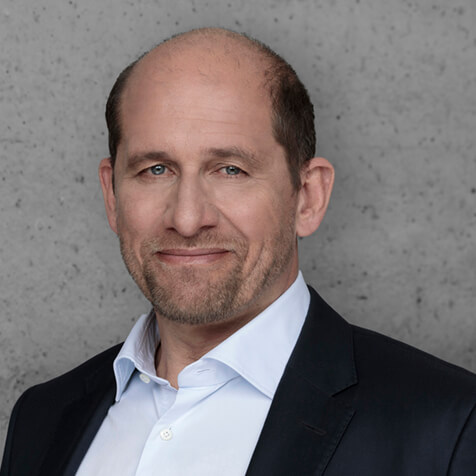OUR GAME THEORY PODCAST
In Game Changer, the podcast by TWS Partners, we want to share our enthusiasm and passion for game theory and its applications. Guests from industry and academia discuss the power of game theory in their profession and how they use it to make a difference. Along the way we strive to offer fun anecdotes, useful facts and valuable insights. Hear us out and find out that game theory is much more than a topic for ivory tower discussions.
CARBON NEUTRAL – THE SMART WAY: HOW GAME THEORY CAN HELP COMPANIES TO REDUCE CARBON GAS EMISSIONS | WITH CHRISTIAN PAUL
January 19, 2021
January 19, 2021

 In this episode Christian Paul, principal at TWS Partners, explains why many companies are struggling to reach their targets in reducing carbon gas emissions.
He argues that this challenge is fundamentally connected to how companies set their internal targets and how the mechanisms are designed to reach these targets.
Here, game theory can create incentive structures to effectively reduce carbon emissions – and more importantly - internally identify opportunities to reduce these emissions at the lowest internal costs.
Christian mentions the annual letter from Larry Fink, CEO of the investment company Blackrock (you can find the letter here: https://www.blackrock.com/corporate/investor-relations/larry-fink-ceo-letter). We were talking to Christian last year, so he is referring to Larry Fink’s letter from January 2020
In this episode Christian Paul, principal at TWS Partners, explains why many companies are struggling to reach their targets in reducing carbon gas emissions.
He argues that this challenge is fundamentally connected to how companies set their internal targets and how the mechanisms are designed to reach these targets.
Here, game theory can create incentive structures to effectively reduce carbon emissions – and more importantly - internally identify opportunities to reduce these emissions at the lowest internal costs.
Christian mentions the annual letter from Larry Fink, CEO of the investment company Blackrock (you can find the letter here: https://www.blackrock.com/corporate/investor-relations/larry-fink-ceo-letter). We were talking to Christian last year, so he is referring to Larry Fink’s letter from January 2020Your current privacy settings do not allow loading shared content from Libsyn. Click here to change your settings and allow loading of Libsyn contents.
FINDING DAYCARE CENTRES FOR CHILDREN IN THE OPTIMAL WAY | WITH TOBIAS RIEHM
January 05, 2021
January 05, 2021

We discuss with researcher Tobias Riehm which economic reasons cause long waiting lists for parents to find daycare centres for their children in Germany. We find that knowledge from game theory can help to develop a significantly smoother allocation which can help all: children, parents and the daycare centres.
Your current privacy settings do not allow loading shared content from Libsyn. Click here to change your settings and allow loading of Libsyn contents.

GAME THEORY AS A TIME BOOSTER: HOW MARKET DESIGN HELPS TO REDUCE DEVELOPMENT TIME FOR A VACCINE AGAINST SARS-COV-2 | WITH MARCUS SCHREIBER
December 22, 2020
December 22, 2020

 We discuss with TWS Partners’ CEO Marcus Schreiber which economic reasons led to the impressively short development time for a vaccine against SARS-CoV-2.
Marcus describes that risk mitigation and clever incentive structures set by the governments significantly contributed to this success story. This can be seen as a prime example for market design, a subfield of game theory.
For our German listeners: You can read more on this topic in Marc’s column in the Handelsblatt (https://www.handelsblatt.com/meinung/kolumnen/expertenrat/schreiber/expertenrat-marcus-schreiber-gut-dass-staaten-die-impfstoffentwicklung-nicht-allein-dem-markt-ueberlassen/26663870.html)
We discuss with TWS Partners’ CEO Marcus Schreiber which economic reasons led to the impressively short development time for a vaccine against SARS-CoV-2.
Marcus describes that risk mitigation and clever incentive structures set by the governments significantly contributed to this success story. This can be seen as a prime example for market design, a subfield of game theory.
For our German listeners: You can read more on this topic in Marc’s column in the Handelsblatt (https://www.handelsblatt.com/meinung/kolumnen/expertenrat/schreiber/expertenrat-marcus-schreiber-gut-dass-staaten-die-impfstoffentwicklung-nicht-allein-dem-markt-ueberlassen/26663870.html)Your current privacy settings do not allow loading shared content from Libsyn. Click here to change your settings and allow loading of Libsyn contents.
GAME THEORY – OR WHY PRISONERS SHOULD LEARN TO COOPERATE | WITH ABHINAY MUTHOO
December 08, 2020
December 08, 2020

We discuss with Professor of Economics Abhinay Muthoo, University of Warwick, a fundamental model of game theory: the Prisoners Dilemma. We not only explore its theoretical background but even more how it can demonstrate and explain rather complex behaviours in business and everyday life.
Your current privacy settings do not allow loading shared content from Libsyn. Click here to change your settings and allow loading of Libsyn contents.

ECONOMISTS TO THE RESCUE – HOW GAME THEORY HELPED TO FIGHT A DEADLY DISEASE | WITH SEBASTIAN MORITZ
November 24, 2020
November 24, 2020

 We discuss with TWS Partners’ Managing Partner Sebastian Moritz how applying knowledge from game theory has helped to eliminate a severe disease. An important part in this discussion will be to understand that setting the focus on prices of drugs alone may not always result in a functioning market, let a alone the desired outcome.
We discuss with TWS Partners’ Managing Partner Sebastian Moritz how applying knowledge from game theory has helped to eliminate a severe disease. An important part in this discussion will be to understand that setting the focus on prices of drugs alone may not always result in a functioning market, let a alone the desired outcome.Your current privacy settings do not allow loading shared content from Libsyn. Click here to change your settings and allow loading of Libsyn contents.

CONTRIBUTIONS OF THE 2020 ECONOMICS LAUREATES – OR WHY WINNING AN AUCTION CAN BE CURSED | WITH ACHIM WAMBACH
October 16, 2020
October 16, 2020

 With our guest Prof. Achim Wambach, PhD, president of the ZEW, we discuss what this year's Economics Nobel Prize laureates Paul Milgrom and Robert Wilson have contributed to game theory and auction theory. Here, we look at both: rather theoretical concepts but also their direct applications.
With our guest Prof. Achim Wambach, PhD, president of the ZEW, we discuss what this year's Economics Nobel Prize laureates Paul Milgrom and Robert Wilson have contributed to game theory and auction theory. Here, we look at both: rather theoretical concepts but also their direct applications.Your current privacy settings do not allow loading shared content from Libsyn. Click here to change your settings and allow loading of Libsyn contents.

GAME THEORY: ONLY A SUBJECT FOR ACADEMIA OR RELEVANT FOR BUSINESS? | WITH MARCUS SCHREIBER
September 23, 2020
September 23, 2020

 We discuss with the CEO and co-founder of TWS Partners, Marcus Schreiber, how game theory as a pure academic subject can also be applied in the business context. We also talk about the journey of how he founded TWS Partners as a consultancy specialised in game theory.
We discuss with the CEO and co-founder of TWS Partners, Marcus Schreiber, how game theory as a pure academic subject can also be applied in the business context. We also talk about the journey of how he founded TWS Partners as a consultancy specialised in game theory.Your current privacy settings do not allow loading shared content from Libsyn. Click here to change your settings and allow loading of Libsyn contents.

